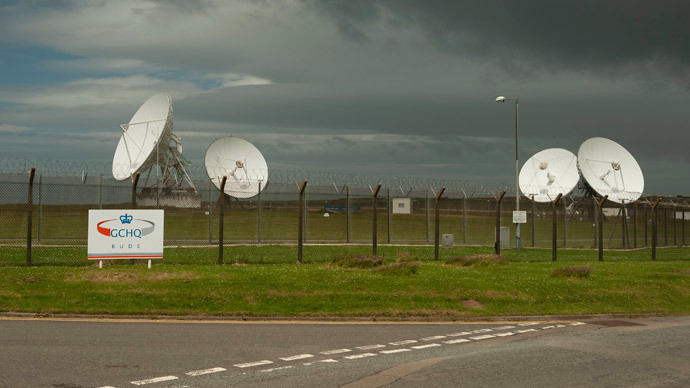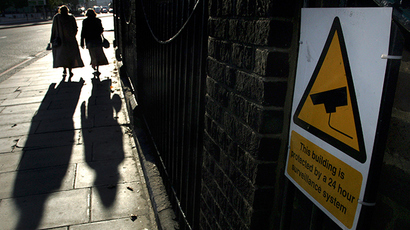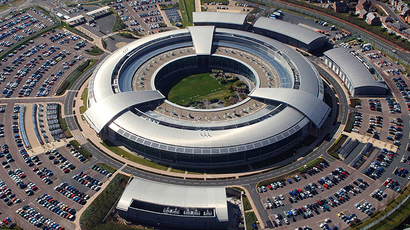DRIP filter: Controversial data retention bill forced through parliament

British MPs are pressing ahead with implementing a controversial bill requiring phone and internet companies to retain their customer’s data for up to a year granting security services unprecedented access to it.
The data retention and investigatory powers bill (DRIP), would give British security services access to an unprecedented level of metadata, including records of phone calls, emails and social media activity.
The bill would also force non-UK companies like Yahoo and Facebook to hold information on web activities if their users are based in Britain.
Following a debate in Parliament held on Tuesday, MPs in two separate votes approved both the bill and the timetable for its implementation. The bill will now be debated in the House of Lords on Wednesday before becoming law.
Written up as ‘emergency legislation’ following US warnings of terror attacks on Western soil, Home Secretary Theresa May said the bill was designed in the interests of national security.
MPs debated the content of the bill following amendments made by May last week acknowledging the need for more security over the information of British citizens.
Full list of 51 MPs who voted to do their legislative job properly on #DRIP, and 441 who voted against: http://t.co/ShzgPjcUDs (scroll down)
— Jack of Kent (@JackofKent) July 15, 2014
Despite calls for debate to be continued during Parliament’s summer recess, due to start on July 22, the bill is expected to be fast-tracked to the House of Lords on Wednesday, and to be made law by Friday.
The bill was proposed by the home secretary last week after months of negotiations between coalition partners the Conservatives and Liberal Democrats. While the bill has garnered support from all three political parties, it has been heavily criticized by civil liberties campaigners.
#DRIP is in the Commons later today. We'll be posting updates on the "debate". In case you missed it here's our blog https://t.co/7J64VtDCdO
— Liberty (@libertyhq) July 15, 2014
Director of Liberty Shami Chakrabarti said that MP’s haven’t been given enough time to scrutinize DRIP, telling BBC news that they needed “more than three days to look at such an important issue.”
"I appreciate that this data can be vital in serious criminal investigations, but what's been going on increasingly is that because it's possible to capture more and more of everybody's data, the government is building a bigger and bigger haystack” Chakrabarti said.
Internet freedom campaigners also attacked the government’s proposals, suggesting that the DRIP bill was framed as ‘emergency legislation’ in order to get it passed without it being studied by the ECJ.
“Examples from recent history show the democratic process being used and abused in times of 'emergency', which result in bad laws or laws with unintended consequences. With the scale and reach of the security services together with the rapid evolution of technology, caution and thought is urgently needed when introducing legislation that affects the very core of our fundamental freedoms” said Mike Rispoli, communications officer of Privacy International.
Just voted against ramming the whole emergency surveillance law in one day. Abuse of parliament. Insult to the intelligence of MPs #DRIP
— Diane Abbott MP (@HackneyAbbott) July 15, 2014
The DRIP bill had been drawn up after the UK’s existing laws on web surveillance were knocked down by the European Court of Justice in April, on the grounds that it could infringe the right to privacy guaranteed under EU law.
Senior MPs also criticized the government’s desire to fast-track the bill, saying that such measures infringe on the democratic process.
Former Tory Shadow Home Secretary David Davis told ministers that MP’s could not debate on the DRIP bill in one sitting.
"This seems to me entirely improper because the role of parliament, we have three roles. One is to scrutinize legislation, one is to prevent unintended consequences and one is to defend the freedom and liberty of our constituents. This undermines all three and we should oppose this motion" he said.
Labour MP Tom Watson, who has been a vocal critic of covert web surveillance, also hit out at the government, saying that the timetabling of the bill was “insulting” to Parliament.
“[This is] democratic banditry resonant of a rogue
state" he said.
In the week leading up to the debate, leading academics and
researchers, from universities including Oxford and Cambridge
wrote an open letter to the House of Commons urging them to
rethink DRIP, arguing that the bill in its current form was a
"serious expansion to the British surveillance state"
" DRIP attempts to
extend the territorial reach of the British interception powers,
expanding the UK’s ability to mandate the interception of
communications content across the globe. It introduces powers
that are not only completely novel in the United Kingdom, they
are some of the first of their kind globally" they
wrote.














